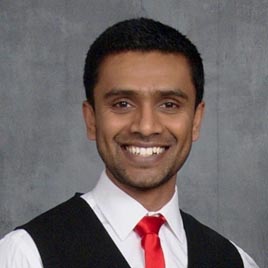By Umesha Naragula Boregowda, MD and Prabhleen Chahal, MD, FASGE
Fluid Resuscitation in Acute Pancreatitis
A multicenter randomized controlled trial conducted by Enrique de-Madaria et al. evaluated the effects of aggressive versus moderate fluid resuscitation on the risk of developing moderate to severe pancreatitis. A total of 249 patients were randomized into two groups: aggressive resuscitation (Ringer's lactate, 20 mL/kg body weight bolus followed by 3 mL/kg per hour) and moderate resuscitation (Ringer's lactate, 10 mL/kg body weight bolus followed by 1.5 mL/kg per hour). The study found no significant difference in the incidence of moderate to severe pancreatitis between the two groups (22.1% vs. 17.3%; relative risk: 1.30; P = 0.32). However, aggressive resuscitation was associated with a significantly higher risk of fluid overload (relative risk: 2.85; P = 0.004).
Prophylactic Pancreatic Stent to Reduce Post-ERCP Pancreatitis
In a multicenter randomized controlled study, Elmunzer et al. evaluated the efficacy of rectal indomethacin alone versus rectal indomethacin combined with prophylactic pancreatic stent placement in reducing post-ERCP pancreatitis. A total of 1,950 patients were randomized to receive either rectal indomethacin alone or in combination with a pancreatic stent. The incidence of post-ERCP pancreatitis was significantly lower in the group that received both rectal indomethacin and a pancreatic stent. However, there was no significant difference between the groups in terms of hospital length of stay, intensive care unit admission, or adverse events.
Early Nutrition in Moderate and Severe Pancreatitis
In a recent randomized controlled trial, Rai et al. investigated the effects of early hunger-based feeding compared to conventional feeding in patients with moderate to severe pancreatitis. Patients were randomized into two groups:
- Hunger-based feeding: Oral feeding initiated when the patient reported hunger (n = 56).
- Conventional feeding: Diet initiated when clinical symptoms improved and biochemical markers normalized.
Hunger-based feeding was associated with a shorter hospital stay (6.3 days vs. 7.3 days; P = 0.041) and a reduced fasting duration (1.6 days vs. 2.7 days; P = 0.01) compared to conventional feeding. However, no significant differences were observed in feed intolerance, infectious complications, or the need for invasive non-surgical procedures.
References
- de-Madaria, E., Buxbaum, J. L., Maisonneuve, P., et al. Aggressive or Moderate Fluid Resuscitation in Acute Pancreatitis.
- Rai, A., Anandhi, A., Sureshkumar, S., et al. Hunger-Based Versus Conventional Oral Feeding in Moderate and Severe Acute Pancreatitis: A Randomized Controlled Trial. Dig Dis Sci 67, 2535–2542 (2022).
- Elmunzer, B. J., et al. Indomethacin with or without Prophylactic Pancreatic Stent Placement to Prevent Pancreatitis After ERCP: A Randomized Non-Inferiority Trial. The Lancet, Volume 403, Issue 10425, 450–458.
 | Dr. Umesha Naragalu Boregowda is a third-year GI Fellow at the University of Texas Health San Antonio. |
 | Dr. Prabhleen Chahal is the 2025 ASGE Master Endoscopist recipient, Steven Schenker Distinguished Professor of Medicine (Tenure) and Chief of the Division of Gastroenterology and Human Nutrition at the University of Texas Health San Antonio. Dr. Chahal’s area of clinical expertise is advanced endoscopy with a focus on interventional endoscopic ultrasound and ERCP. |